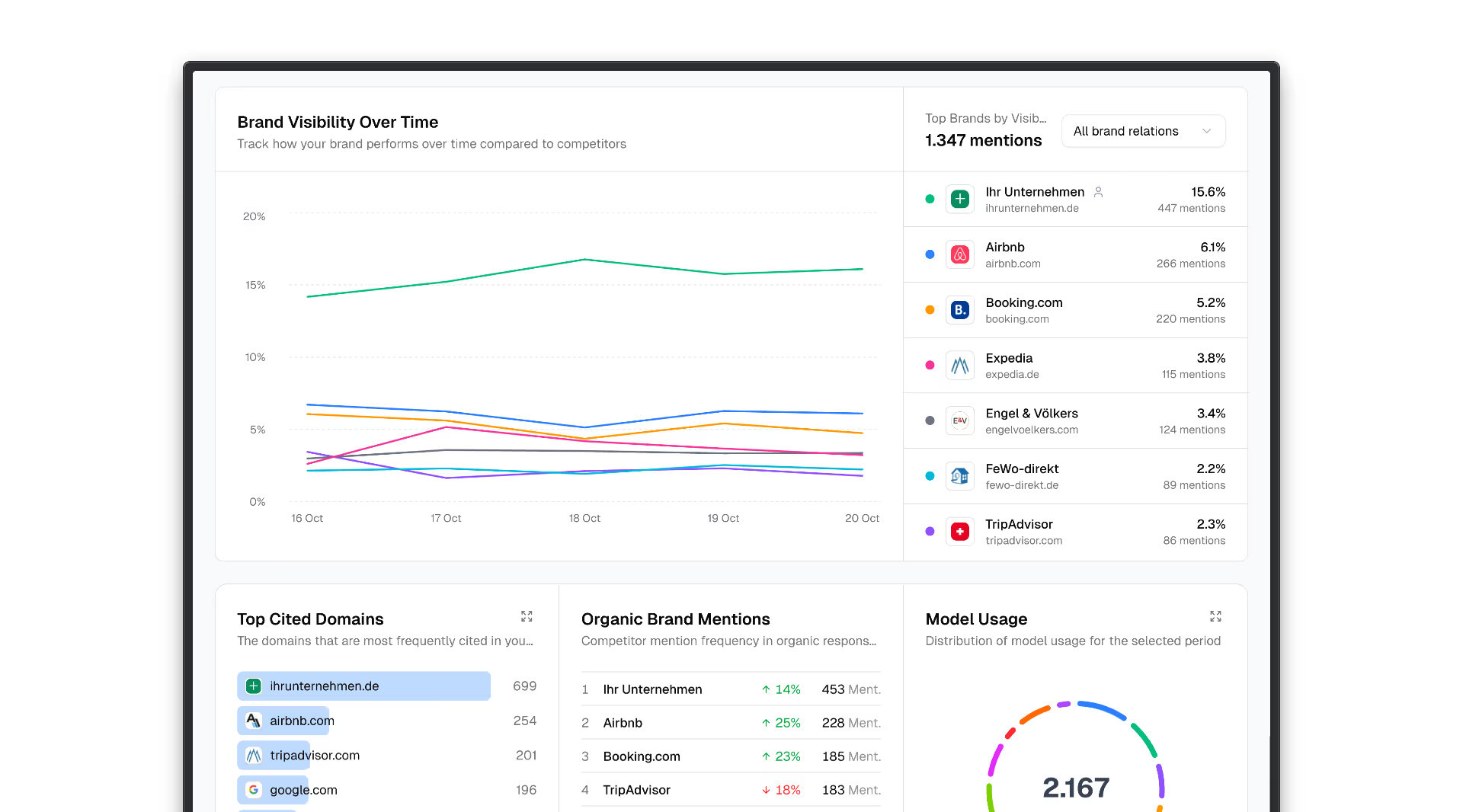What is content authority in a digital context?
Content authority is the ability of content to be perceived as trustworthy, relevant and of high quality by both human users and algorithmic systems. This term is particularly important in the context of Google's E-E-A-T framework (Experience, Expertise, Authoritativeness, Trustworthiness), which serves as a quality assessment standard for content evaluation.
Google's E-E-A-T as a basis for evaluation
The E-E-A-T framework stands for experience, expertise, authoritativeness and trustworthiness and was originally developed for human quality raters (Google Search Central blog, December 15, 2022). Important clarification: E-E-A-T is not a direct ranking factor, but a rating framework for Quality Rater that helps Google rate the quality of its algorithms (Google Search Quality Rater Guidelines 2024).
The four pillars in detail:
- Experience (Experience): Practical, verifiable experience of the author with the topic covered
- Expertise (expertise): Measurable qualification and competence in the respective domain
- Authoritativeness: Recognized as a trusted source by the industry
- Trustworthiness (trustworthiness): Credibility of author, content and website
Controversial discussion: Is E-E-A-T measurable?
The SEO community disagrees about the practical relevance of E-E-A-T. Experts stress: “There has never been any proof that E-A-T can be measured algorithmically. In fact, Google directly told us that it couldn't” (Link Assistant, August 2024).
Critical objections from SEO experts:
- Lack of algorithmic measurability: Many adopted E-E-A-T elements, such as author bios, are not used by Google for ranking (Search Engine Land, February 2024)
- Confusion in practice: Misunderstandings about E-E-A-T often lead to confusion and incorrect SEO strategies (Now Media Group, March 2024)
- Indirect effect unproven: E-E-A-T is not a ranking factor per se, but a framework. It is only assumed that E-E-A-T principles are incorporated indirectly into Google's algorithm (Search Engine Land, August 2024)
Advocate perspective:
Marie Haynes, a respected E-E-A-T expert, observes that Google is increasingly rewarding original, high-quality content, while generic or low-quality AI-generated content is being devalued (Search Engine Journal, May 2024).
Transformation through AI integration in search
Google's AI overviews and search generative experience
Google integrates generative AI into search results to generate user-specific, categorized answers. AI overviews have been rolled out to millions of US users since May 2024, reinforcing the importance of high-quality, structured content.
Implications for content strategies
Google's March 2024 update aims to reduce low-quality, AI-generated “copycat content” by 40% (Google Search Central, 2024). This underlines the growing importance of original, high-quality content compared to machine-generated content without added value.
Technical implementation of content authority
Structured data as a sign of trust
Structured data is a standardized format for classifying page content that helps search engines understand content quality and context. More than 45 million domains already use schema.org markup with over 450 billion structured objects (Web Almanac 2024).
Relevant schema types for content authority:
Person and organization scheme
{
“@context “:" https://schema.org “,
“@type “: “person”,
“name”: “author name”,
“jobTitle”: “Expert position”,
“worksFor”: {
“@type “: “Organization”,
“name”: “Organization name”
},
“url”: "https://autorenprofil.de”
}
Article scheme with author information
{
“@context “:" https://schema.org “,
“@type “: “Article”,
“headline”: “Article title”,
“author”: {
“@type “: “person”,
“name”: “author name”
},
“datePublished”: “2024-08-08",
“publisher”: {
“@type “: “Organization”,
“name”: “Publisher”
}
}
Measuring and monitoring content authority
Specific measurement tools for E-E-A-T factors
Important limitation: E-E-A-T is not a direct ranking factor that tools can measure. Instead, you must use proxy metrics that point to E-E-A-T principles.
Measurable indicators:
Experience (Experience):
- Google Analytics: Time spent and bounce rate on expert articles
- Search Console: Click-through rate for experience-based keywords
- Social media analytics: engagement with personal experience reports
Expertise (expertise):
- Backlink analysis tools (Ahrefs, SEMrush): links from academic publications and universities
- Brand monitoring: Mentions as an expert in specialist media
- Search Console: Rankings for complex, subject-specific keywords
Authoritativeness:
- Domain Authority (Moz) and Domain Rating (Ahrefs) as approximations
- Citation analysis: Using your content as a source in other publications
- SERP analysis: position in informative search queries
Trustworthiness (trustworthiness):
- Google Search Console: Manual actions (should be zero)
- SSL certificate and security scores (GTmetrix, PageSpeed Insights)
- Review ratings on Google My Business and industry sites
E-E-A-T audit tools:
Key Performance Indicators (KPIs)
- Organic visibility: Rankings for target-relevant keywords
- Featured Snippets: Selection for highlighted snippets
- AI Overview Inclusion: Mention in AI-generated answers
- Brand Mentions: Unlinked mentions in relevant contexts
- Engagement metrics: Length of stay, return rate, social shares
Practical example: E-E-A-T optimization of financial advice
Initial situation:
A financial advice website ranked poorly for keywords such as “retirement planning strategies” and “building an ETF portfolio.”
Before (weak E-E-A-T signals):
<h1>The best investment strategies 2024</h1>
<p>By Admin | 15.03.2024</p>
<p>Here are the most important tips for investing...</p>
After (optimized E-E-A-T implementation):
<article>
<h1>Building an ETF portfolio: 3 proven strategies from 15 years of consulting experience</h1>
<div class="author-info">
<img src="max-mueller.jpg" alt="Max Müller, Certified Financial Planner">
<div>
<strong>Max Müller, CFP</strong>
<p>Certified financial planner (CFP) with 15 years of experience.
Over 500 successfully managed portfolios. Regular columns
in Handelsblatt and Focus Money</p>.
<a href="/autor/max-mueller">Full profile</a>
</div>
</div>
<!-- Schema Markup -->
<script type="application/ld+json">
{
“@context “:" https://schema.org “,
“@type “: “Article”,
“headline”: “Building an ETF portfolio: 3 proven strategies from 15 years of consulting experience”,
“author”: {
“@type “: “person”,
“name”: “Max Müller”,
“jobTitle”: “Certified Financial Planner”,
“worksFor”: {
“@type “: “Organization”,
“name”: “MusterFinanz GmbH”
},
“url”: "https://example.com/autor/max-mueller”
},
“datePublished”: “2024-03-15",
“publisher”: {
“@type “: “Organization”,
“name”: “MusterFinanz GmbH”,
“logo”: "https://example.com/logo.png”
}
}
</script>
</article>
Results after 6 months:
- Rankings for “ETF Portfolio” rose from position 47 to position 8
- Organic clicks increased by 340%
- Average length of stay increased from 1:20 to 4:15 minutes
- 12 high-quality backlinks from specialist publications
Success factors:
- Evidence of expertise through certification and experience
- Structured data for better algorithm recognition
- Specific, experience-based content instead of general tips
- Transparent authorship with links to the full profile
Strategies to strengthen content authority
1. Documenting thematic expertise
Develop consistent content in specific subject areas instead of covering many topics on the surface. E-E-A-T acts as a guide to distinguish high-quality content from “white noise.”
2. Make authorship transparent
Author Schema Markup ensures that content benefits from evaluation algorithms, even as content is increasingly AI-generated. Implement:
- Detailed author bio pages
- Linking to professional profiles (LinkedIn, XING)
- Structured data for authors and organizations
- Clear editorial responsibilities
3. Create source-based content
Use primary data sources, studies, and your own research as a basis for your content. This increases both the originality and citability of your publications.
4. Technical optimization
Structural clarity
- Logical information architecture with H1-H6 hierarchy
- schema.org markup for better content recognition
- Clear navigation and internal linking structure
Performance and ease of use
- Quick load times
- Mobile optimization
- Accessible design
5. Network and link building strategies
Develop strategic partnerships with authoritative websites in your area of expertise. Quality backlinks from trustworthy sources reinforce the perceived authority of your content.
future prospects
Google does not fundamentally punish AI content, but only manipulative content that was created exclusively for search engine manipulation (Google Search Central, 2024). The future lies in combining human expertise with technological efficiency.
Development trends:
- Increased integration of AI into search algorithms
- Increasing importance of user experience and satisfaction
- Increased requirements for content originality and depth
- Increasing automation of quality assessment


